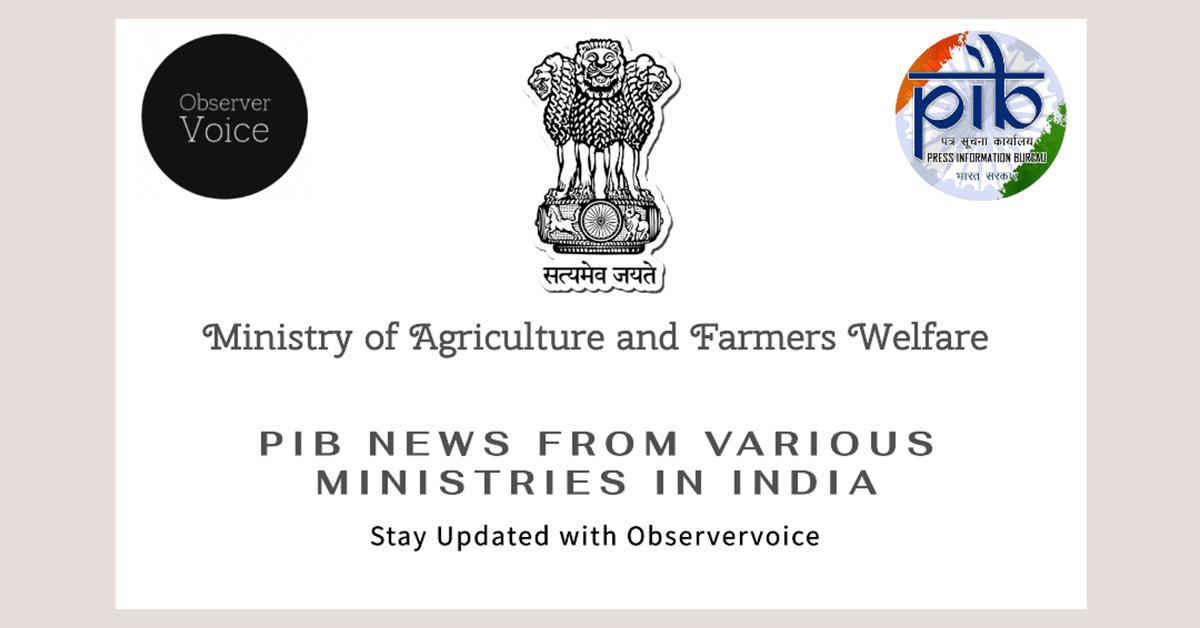CLIMATE-RESILIENT CROP VARIETIES

The agricultural landscape in India is undergoing significant transformation, driven by innovative research and technology. The National Agricultural Research System (NARS), which includes the Indian Council of Agricultural Research (ICAR) and various agricultural universities, has made remarkable strides in crop development. Between 2014 and 2024, NARS has introduced 2,900 new crop varieties, with a notable emphasis on climate resilience. This article explores the advancements in crop varieties, irrigation efficiency, weather forecasting, and drought monitoring, all aimed at enhancing agricultural productivity and sustainability.
Development of Climate-Resilient Crop Varieties
The National Agricultural Research System has played a pivotal role in developing new crop varieties tailored to withstand climate challenges. Over the past decade, a total of 2,900 varieties have been introduced, with 2,661 of them designed to be climate resilient. Specifically, for the state of Kerala, 63 new field crop varieties have been developed. This includes 23 varieties of cereals, 2 of oilseeds, 10 of pulses, 15 of forage crops, and 13 of sugarcane. Remarkably, 58 of these varieties are climate resilient, showcasing a strong commitment to adapting agriculture to changing environmental conditions.
These developments are crucial as they provide farmers with options that can thrive in adverse weather conditions. The introduction of climate-resilient crops helps mitigate the risks associated with unpredictable weather patterns, ensuring food security and farmer livelihoods. By focusing on research and development, NARS is not only enhancing crop yields but also promoting sustainable agricultural practices that can withstand the challenges posed by climate change.
Enhancing Water Use Efficiency through Micro Irrigation
Since 2015, the Indian government has implemented the Centrally Sponsored Scheme of Per Drop More Crop (PDMC) to improve water use efficiency in agriculture. This initiative encourages the adoption of micro-irrigation systems, such as drip and sprinkler irrigation. The PDMC operates under the Pradhan Mantri Krishi Sinchayee Yojana (PMKSY) and has been instrumental in promoting efficient water management practices.
The scheme provides financial assistance to farmers, covering 55% of the costs for small and marginal farmers and 45% for other farmers. This support enables farmers to install modern irrigation systems that significantly reduce water usage and fertilizer application through techniques like fertigation. By lowering input costs and enhancing overall income, the PDMC aims to empower farmers and improve agricultural productivity.
The benefits of micro-irrigation extend beyond water conservation. These systems also help in reducing labor expenses and minimizing the environmental impact of farming. As farmers adopt these technologies, they can achieve better crop yields while conserving vital water resources, making agriculture more sustainable in the long run.
Weather Forecasting and Agrometeorological Advisory Services
To assist farmers in making informed decisions, the India Meteorological Department (IMD) has launched the Gramin Krishi Mausam Sewa (GKMS) program. This initiative provides operational agrometeorological advisory services in collaboration with ICAR and various state agricultural universities. Currently, 130 Agromet Field Units (AMFUs) operate across the country, delivering timely weather forecasts and agricultural advisories.
These AMFUs prepare district-level bulletins tailored to the specific needs of farmers. In Kerala, five AMFUs are actively involved in disseminating information through multiple channels, including print and electronic media, radio, and mobile SMS alerts. Farmers can access critical weather updates and advisories through mobile applications like ‘Meghdoot’ and ‘Mausam.’ This integration of technology ensures that farmers receive real-time information, enabling them to adapt their farming practices to changing weather conditions.
Moreover, the recent launch of Panchayat-level weather forecasts by the Ministry of Earth Sciences further enhances the accessibility of weather information for rural communities. By utilizing digital platforms, farmers can stay informed about weather patterns and take proactive measures to protect their crops from extreme weather events.
Drought Monitoring and Management Strategies
Drought poses a significant threat to agriculture in India, necessitating effective monitoring and management strategies. The Department of Agriculture and Farmers’ Welfare has developed a Geoportal in collaboration with the Space Application Centre (SAC) of ISRO. This platform provides comprehensive data on various drought indicators, including rainfall, soil moisture, and crop conditions.
The Geoportal serves as a single-window digital platform, enabling stakeholders to assess drought situations at the district or tehsil level. By identifying potential drought conditions early, the portal facilitates timely interventions to support farmers. This proactive approach is essential for effective drought management and helps mitigate the adverse effects of water scarcity on agricultural productivity.
Observer Voice is the one stop site for National, International news, Sports, Editor’s Choice, Art/culture contents, Quotes and much more. We also cover historical contents. Historical contents includes World History, Indian History, and what happened today. The website also covers Entertainment across the India and World.
Follow Us on Twitter, Instagram, Facebook, & LinkedIn

